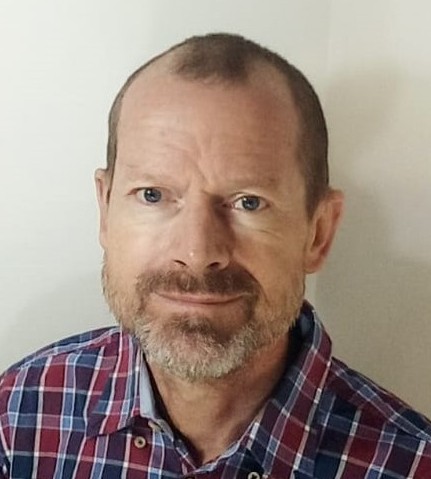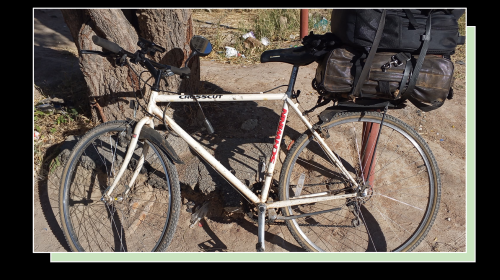Faced by widespread material inequalities in today’s world, many Christians in the West seek to alleviate suffering, e.g. through development work or missionary service. Often, they use the resources – knowledge, money, access to the powers that be, etc. – at their disposal in their efforts to ‘uplift’ others. The Alliance for Vulnerable Mission seeks to raise awareness for the benefits of an alternative approach. Instead of ‘trying to pull people out’ (using outside resources), it encourages to consider ’stepping into’ people’s poverty.

Jim Harries, founder of the Alliance for Vulnerable Mission, has made costly efforts in this direction. In this piece, he reflects on his reasons for sharing in the material poverty of people.
To some, sharing in the poverty of the poor, is very virtuous. Others might find it inconvenient, and of no real value. ‘The poor’ themselves may see no point in an outsider who has access to more resources living at their level. There are some basic reasons for me to see sharing with the poor in their poverty as desirable:
1. It saves making oneself responsible for elevating everyone else. People in many poor communities expect their patrons to give them some lift. A missionary who evidently has access to plentiful resources is quickly and easily seen in this way. Demands come thick and fast; someone needs a ride to town, someone else school fees, someone else food, someone else a hospital bill paid, someone else funds for a wedding, and so on. If one has resources and does not use them in these ways one can be seen as stingy or immoral. Using them in this way absorbs time, energy and emotions! At the end of the day, a missionary following this model takes on the roll of a bank making gifts and loans plus, typically, a free taxi.
2. Sharing in the poverty of the poor anticipates hard times ahead, when one’s supporters are no longer so generous, as they no longer understand what you do and why. People in the West have a view of ‘how to help the poor’, in Africa and beyond. They like to see their donations being used to fulfil their own logic. Someone who spends a lot of time on the ground begins to see through that logic. Things make sense to them in a different way. This means that when a long-term missionary works in a way that makes sense locally, they will gradually lose out on foreign support. If they do not allow their standard of living to drop, they will run out of funding.
3. Living at the level of ‘the poor’ facilitates drawing close to them, which is to say for at least some of one’s time, lining one’s own way of life up with theirs. This enables profound understanding of what is going on in a community. Such understanding in turn brings the realization that – it is never as simple as ‘more money is needed’. Walking with the poor while sharing in their poverty eventually enables camaraderie that isn’t oriented to making money. It is wonderful to be with people while not being seen as the local bank! Then one can begin to contribute meaningfully into local contexts.
4. Fear of envy is the primary factor that keeps people stuck in poverty. Envy is a terrible inter-human force. It has billions in its grip! In a manner of speaking, it has us all in its grip. It is the reverse of good morals, yet it also is good morals, and this confuses people. That is to say, good morals say ‘share what you have’. Envy says ‘if you don’t share what you have, I will get you’! Good morals say ‘help one another’. Envy says ‘help me or else’! Thus envy seems to support and even represent good morals. The motivation differs – one does good either through fear of envy, or through love of God and man. The difference between envy and love being slim, can make it hard to distinguish the two, despite envy being of the devil and love the motivator of Godliness. Waning Godliness that results in lack of morality shifts individuals and a community towards envy as its driving force. Godliness can bring great prosperity to a community. Fear of envy ends in abstract poverty.
5. Having faith in God (i.e., the Christian God, the God of the Bible) is being less envious. African people often realise this more than Western people. Western people frequently conceptualise Christian faith as contradicting their understanding of a spiritual versus physical dualism, because it requires them to believe in something called God that is physical while not so. Prominence of this misconception having undermined a lot of Christianity in the West breeds atheism and agnosticism. In the latter fear of envy easily grows larger than love. Africans seek to demonstrate their faith in God, a means to overcoming envy, by displaying their wealth. Ironically, those who have benefitted from the prosperity arising from faith in Christ over history, Western people who are some of the most prosperous in the world, kick against this form of African understanding of prosperity. For Westerners, this self-enrichment considered prosperity Gospel, is Africans loving the fruit of faith more than faith itself or God himself. (I’m not saying I don’t agree with the Westerners.)






